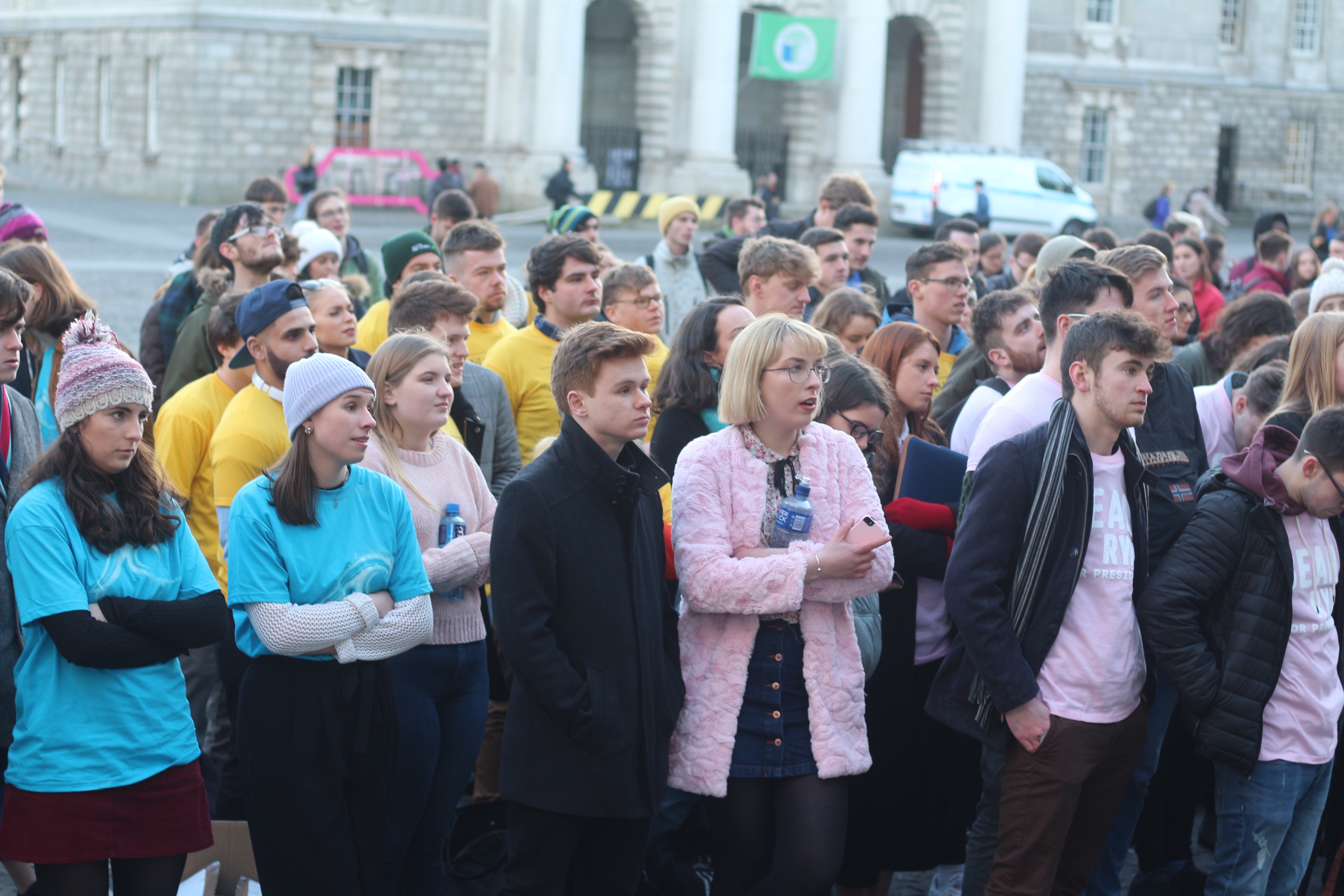
Yes, the audience: an eclectic mix of SU hacks, campaign team members and the assembled student media. Having attended every husting this week, it the regularity of attendendance that each group sustains is striking. When each candidate makes their case, the corresponding campaign team applaud and cheer. When not questioned by a campaign team member, it’s SU hacks that do the hand-raising; a group who already have set ideas about Union issues and are unlikely to learn anything new from candidate’s responses.
The type of audience naturally corresponds with the venue. At the Council Hustings, of course the majority of attendees will be class reps. At the TN Activism Hustings and UT Equality Hustings, of course the campaign teams will want to attend to support their candidates. However, it is the Dining Hall Hustings that is the most indicative of the redundancy of the hustings in the TCDSU leadership race.
A husting as defined by the Oxford English Dictionary is a meeting in a campaign race where candidates can take the opportunity to address potential voters. If this were indeed the case for these elections, then you would imagine that some students outside of the aforementioned groups would stumble across the Dining Hall Hustings. Taking place in Front Square, one of the most public places in Trinity, student voters could have heard from their potential candidates. However, the only people to actually do so were the catering staff of the Buttery Hall heading home for the evening.
Instead, the assembled crowd at the foot of the steps are not a group of potential voters, clay to be moulded to your position, but were instead public monuments to preconditioned voting intention. The campaign teams know where their loyalties lie, the SU hacks know the answers to their questions and the student media present want to get the article typed up as quickly as possible before they lose the feeling in their fingers.
Only these groups appear to attend hustings and, as a consequence, the best informed voters are those who were tied to a post weeks before campaigning even began. Are these attendees really the only people who can be reached during campaigning? The unfortunate friends who agrees to sling on a novelty t-shirt and terrorise students between lectures in the Arts block and the Hamilton? The class reps who unfailingly vote with the prevailing winds at SU council?
Worse than an echo chamber, hustings are similar to striking an old tyre with a sledgehammer. For the candidates, the resounding thud feels good but the dull resonance reflects the effects the candidates words have on the assembled audience. Tired rubber can still mould its shape after a blow and very few in the audience comes away from the hustings with a new perspective.
Hustings are tradition and attempts to modernise them with Facebook Live broadcasts were a good idea. However, if the idea of a hustings is to reach potential voters then the TCDSU Leadership hustings are not doing so.






